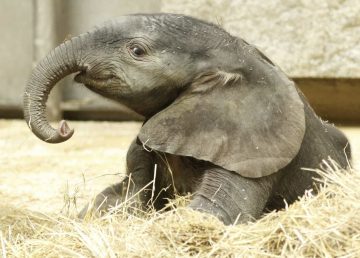Doug Johnson in Undark:
 Compared to humans, whales and elephants can have hundreds of times the number of cells — and have similarly long natural lifespans — but their cells mutate, become cancerous, and kill them less frequently. This quirk of nature, which the ACE team is studying, is called Peto’s Paradox, named for Richard Peto, a British epidemiologist. In the late 1970s, he proposed that there must be some kind of natural selection for cancer suppression, because humans live longer and are much larger than mice, but the species have similar rates of the disease.
Compared to humans, whales and elephants can have hundreds of times the number of cells — and have similarly long natural lifespans — but their cells mutate, become cancerous, and kill them less frequently. This quirk of nature, which the ACE team is studying, is called Peto’s Paradox, named for Richard Peto, a British epidemiologist. In the late 1970s, he proposed that there must be some kind of natural selection for cancer suppression, because humans live longer and are much larger than mice, but the species have similar rates of the disease.
In 2011, ACE researchers, along with scientists at 11 other institutions worldwide, first started looking at how Peto’s Paradox manifests itself in the genomes of humpback whales by comparing the information in Salt’s genes to those of other cetaceans. According to the results reported this year, the parts of a whale’s genome that determine how and when a cell splits evolved quickly and coincided with when the animals grew to their enormous size. Marc Tollis — a biologist at Northern Arizona University’s School of Informatics, Computing, and Cyber Systems who joined and began leading the ACE study in 2015 — hopes that taking one of the amped up, cancer-fighting whale genes and putting it in the body of a smaller creature will help the latter fight off these cellular mutations: a mouse as a test, a human as a hopeful end result.
More here.
